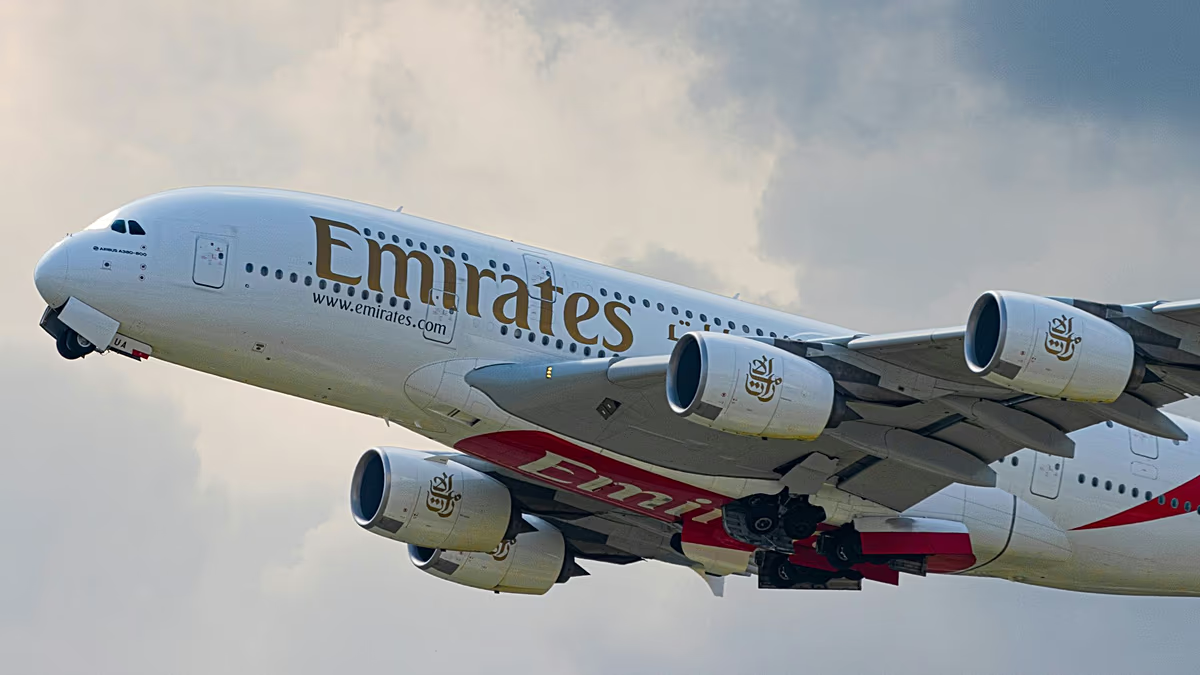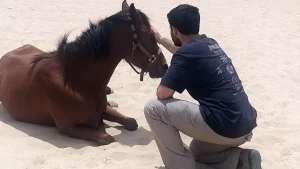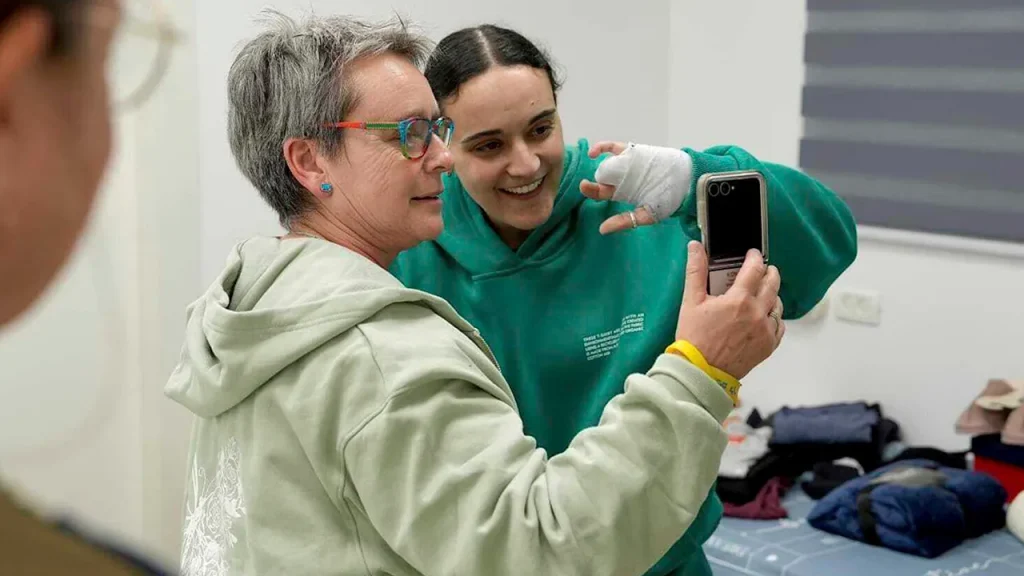From Darkness to Light: Emily Damari’s 471 Days as a Hamas Hostage
When Emily Damari stood before the packed audience at Temple Emanu-El in New York City, she received a standing ovation before speaking a single word. The 28-year-old survivor, who endured 471 days in Hamas captivity, radiated a remarkable strength as she shared her harrowing experience. Despite recounting moments of unimaginable terror, Damari often smiled—a deliberate choice that reflected her unwavering spirit. “Even at the hardest moment I didn’t look down. I always looked up,” she explained. “I didn’t let the terrorists have the satisfaction of seeing me break. They have not broken me.” This resilience defined her captivity and now defines her freedom, as she transforms her trauma into testimony, determined that the world should know the truth about what happened to her and what continues to happen to those still held hostage in Gaza.
The nightmare began on October 7th when Hamas terrorists stormed Damari’s home in Kibbutz Kfar Aza, breaking into her safe room. “They were inside the safe room and shot my hand. The first thing that they did, they shot my hand,” she recalled. Moments later, they killed her beloved dog with a bullet to the head. As they dragged her toward Gaza, Damari begged them to end her life instead. “I understand he’s not going to take me to a hospital in Ashkelon or Tel Aviv… so I’m like, no, no. Please shoot me. I don’t want to be a hostage.” Instead, she was forcibly taken across the border and brought to Shifa Hospital, which she insists was not the civilian medical facility it has been portrayed as in international media. “That hospital… you always see on Al Jazeera, saying there’s a civilian hospital and everything,” she explained. “So just so you know… it’s not a civilian hospital.” Damari described being treated by someone who introduced himself as “Dr. Hamas” and witnessing “many terrorists, dead bodies, hostages and weapons” throughout the facility.
For over 15 months, Damari endured captivity in more than 30 different locations—apartments, schools, tunnels, garages, and even a tire storage room. She faced deplorable conditions, often going days without showers, having barely any water, and sleeping in cramped, filthy spaces sometimes “without any toilet.” One of her most painful memories came when she was taken underground into a small cage where she saw kidnapped girls, including a 9-year-old separated from her parents. As a woman in captivity, she lived with constant fear of sexual violence. “You go to sleep every night… with that fear, that they are going to rape you,” she shared. Throughout her ordeal, her strong personality and refusal to be broken showed through. When her captors called her a “prisoner,” she challenged them: “If you call me a prisoner, why do I not get three meals a day? Why don’t I get to speak with my mother? Why don’t I ever get to see the sun?” This defiance was also evident in her viral moment of release when she pushed away the terrorist holding her as she was transferred to the Red Cross.
During her captivity, Hamas guards used battery-powered televisions to play Al Jazeera broadcasts, which often showed international reactions to the conflict. Damari was shocked by what she saw, particularly American campus protests. “I couldn’t believe watching the protests in the USA, especially at Columbia University,” she said. “Students protesting and people demonstrating for something they knew nothing about.” As a gay woman who had to hide her identity to stay alive, she was particularly disturbed seeing LGBTQ activists supporting Hamas. She even confronted her captor about this irony, telling him that if those “Queers for Palestine protesters ever got into Gaza, they would never come out.” Her captor simply smirked and agreed. Despite this disillusionment with some international responses, Damari and other hostages found emotional sustenance in weekly demonstrations taking place in Israel. “We waited every week for that Shabbat… it was one of the biggest lights for us,” she explained. “We watched the protest, and we knew they didn’t forget about us… they did whatever they could for us to be released.”
Throughout her captivity, Damari lived with agonizing uncertainty about whether her family had survived the massacre in Kfar Aza, as terrorists had reached “very close to my mother’s house” and her brother’s home. She prayed for a sign that her mother was alive, which finally came when guards briefly switched on a television and she saw her mother holding her poster in the Knesset. However, she still didn’t know about her brother’s fate until after her release, when IDF officials told her, “All your family is fine… your brother is fine.” Even after regaining her freedom, Damari couldn’t fully embrace it while her best friends, Gali and Ziv Berman, remained captives. “I didn’t feel comfortable seeing the sunset. I didn’t enjoy anything… while they were still there,” she explained. Their release on October 13th, brokered by the Trump administration, was the moment Damari finally felt truly free. “Now I’m feeling amazing,” she said. “That was the real happiness that I was searching for.”
Despite her ordeal, Damari sees purpose in her suffering and survival. “I think there’s a reason that God chose me to have this horrible experience… I have the opportunity to speak with the world… and to share my story,” she reflected, revealing that she has begun writing a book. Her testimony serves as both personal catharsis and a powerful counter to misinformation about the conflict and hostage crisis. She concluded her appearance with a heartfelt plea not to forget the four hostages still held in Gaza, emphasizing that “everyone should have their dignified burial.” Damari’s story embodies the resilience of the human spirit in the face of unspeakable cruelty. Her refusal to be broken, her commitment to truth, and her determination to speak for those who cannot speak for themselves transforms her personal tragedy into a powerful testament to courage and hope. In sharing her story, Emily Damari not only reclaims her voice but ensures that the world understands the human cost of this conflict—a cost that continues to be paid by those still held captive.















